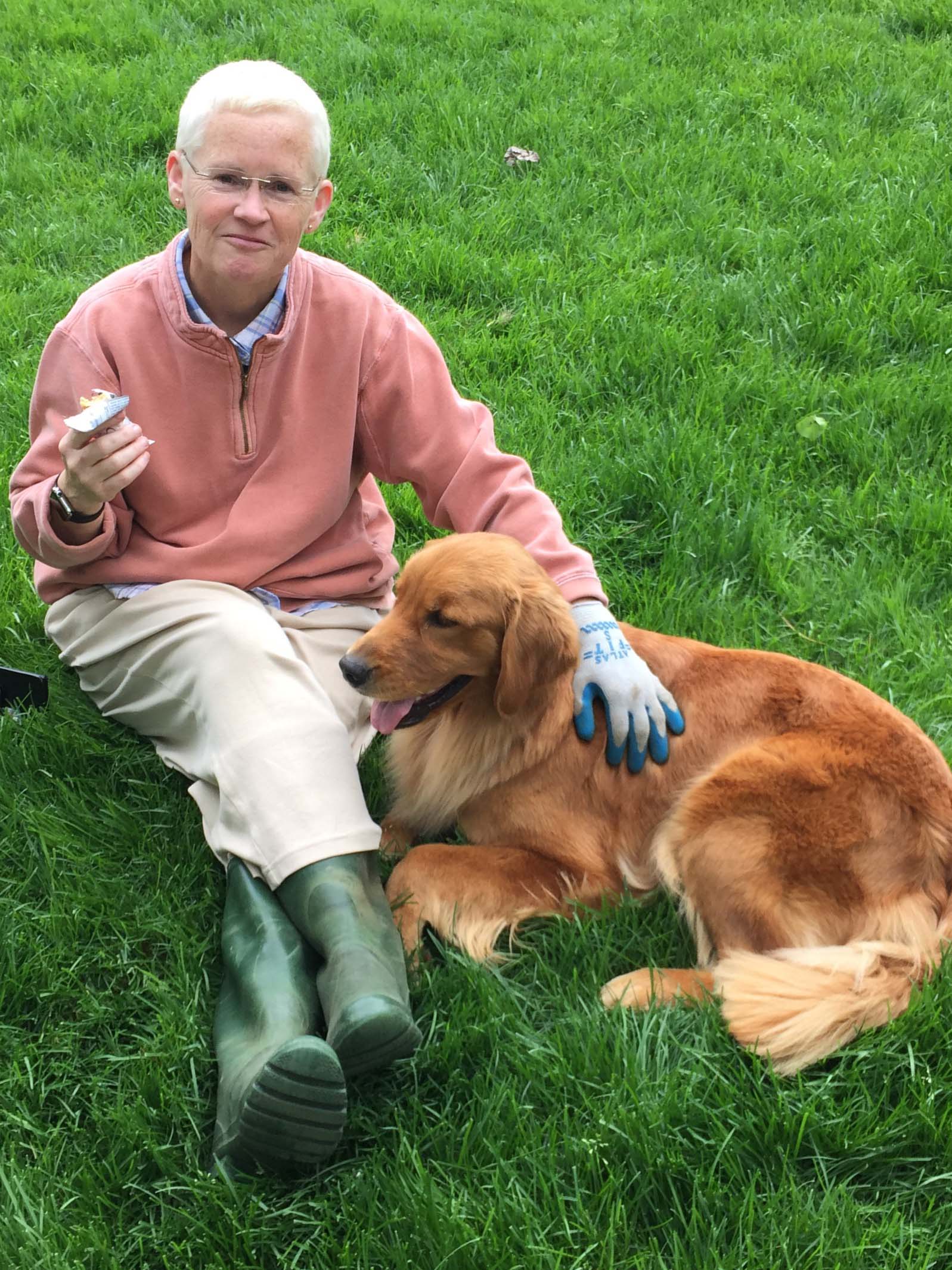Enable the college to invest wherever the need is greatest.

Cynthia Suprenant’s introduction to the college came through the expert help of Cornell veterinarians. Her local practitioner, Jim Glendening, D.V.M. '70, gave her animals attentive and world-class care, and when a beloved cat passed away, he made a gift in the cat’s name to the college. “When I saw that Cornell mattered so much to Doc, I thought I should give, too,” says Cynthia. After a few years passed, Cynthia was again referred to Cornell by Dr. Glendening, this time, for Dr. de Lahunta’s evaluation of another of her cats that was experiencing seizures. Even more recently, Ann Moger, D.V.M. ’04 and David Judge, D.V.M. ’10, would refer Cynthia and her ailing golden retriever to their trusted colleagues at the Cornell University Hospital for Animals for expert care. She grew even more grateful to have the resources of the veterinary college and hospital, and continued to be impressed by the people she met there.
“When I saw that Cornell mattered so much to Doc, I thought I should give, too,” says Cynthia.
Cynthia SuprenantOut of those encounters with Cornell, Cynthia has grown to be a dedicated supporter of the college. “At first, my commitment grew out of meaningful personal interactions with the veterinarians and staff caring for my animals,” says Cynthia. “Over the years, though, my support grew and matured into a belief in the fundamental mission of the veterinary college. Whether a student eventually goes into clinical practice, academia, or research — none of those things can happen without that education. The education underpins everything.”
With this trust in the mission of the college, Cynthia has made a choice to regularly give to the college’s annual fund. This fund provides support to all aspects of the mission of the College from student education, to faculty recruitment, to hospital care, providing the college with the greatest flexibility to address opportunities as they arise. “I believe in Cornell as an institution. I believe in its leadership, even as that leadership evolves over the years,” says Cynthia. “That’s why I prefer not to specify how Cornell uses my gifts. From my perspective, the leadership knows the needs and the resources required to meet those needs. It may be that money is needed for a specific research effort, for a new program, or it may be needed to keep the lights on. These are all valid things, and I’d like the leadership I trust to have the most flexibility they can have.”
“This fund is a chance for everyone to make a difference.”
Cynthia SuprenantAs we grapple with the impact of the COVID-19 pandemic, the College of Veterinary Medicine faces unprecedented challenges which make the annual fund more important than ever. As a donor to the College annual fund, you will provide critical funds to help us respond immediately to the unforeseen needs emerging day to day.
Whether your gift is big or small, the collective power of the annual fund makes every dollar count, Cynthia says. “This fund is a chance for everyone to make a difference.”
Will you help the College address its pressing, everyday needs?
- To make a gift by mail
-
Send checks payable to Cornell University, please note your gift intention in the memo field, and mail to:
Cornell University
Box 37334
Boone, IA
50037-0334
- To make a gift with credit card
- Charge your gift using Visa, MasterCard or American Express. Call us at (607) 253-3745.



